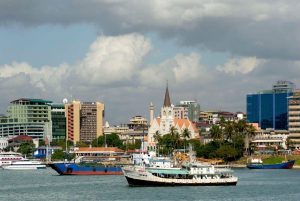The International Air Transport Association (IATA) has started legal action in the Netherlands in order to prevent the implementation of a new Policy Rule for slot allocation, which would harm the functioning system of slot allocation on the global level and lead to commercial damage for IATA members.
According to IATA’s statement the Rule was implemented by the slot coordination of the Netherlands, ACNL, to take effect for the summer season of next year.
In addition, the Rule establishes a list of priority destinations for slots at three overcrowded Dutch airports – Amsterdam Schiphol, Eindhoven, Rotterdam The Hague – which according to IATA, would violate the EU regulation on the common rules for community air services and the EU Slot Regulation in several aspects, SchengenVisaInfo.com reports.
The Air Transport Association claimed that the Rule was inadequately implemented while emphasising that ACNL one-sidedly applied it without consulting parties involved, as would be required under the law of the EU.
“The application of the Rule in slot allocation decisions compromises the role of the independent and impartial slot coordinators enshrined in EU law, instead requiring priority to be given in their decision-making to a list of destinations. This makes the coordinator the servant of the airport to the disadvantage of the airlines and the consumer,” the Deputy Director-General of IATA, Conrad Clifford, said.
Furthermore, Clifford said that the slot allocation process must serve the consumers’ needs who want to reliably more freight or move, highlighting that airlines should design schedules that meet consumer demand, not the desires of the infrastructure providers.
In addition, it has been highlighted that the Rule compromises the systematic development of air connectivity. Royal Schiphol Group has ignored important principles of slot allocation, such as providing consumers with a choice for services and products and encouraging competitive markets.
“Taking decision-making authority out of the fair and impartial global slot process and putting it in the hands of the airport would therefore be detrimental to the development of efficient air connectivity with negative impacts on individual consumers, businesses and ultimately the Dutch economy,” IATA’s statement reads.
Moreover, IATA has noted that the Rule poses a significant risk to the impartial role of slot coordinators in the EU. Implementing the Worldwide Airport Slot Guidelines (WASG) in line with the law that is currently in force is one of the fundamental principles of coordination as long as there is independence and impartiality in its implementation. However, this Rule contradicts both the EU law and WASG.
Previously, IATA urged governments to end the COVID-19 travel restrictions as these rules are hindering the recovery of air transport while criticising the lack of agreement between countries.
Source: Schengen Visa Info






